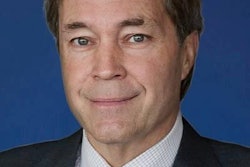Continuing to deliver on its global growth plans, Kemin Industries has formed a new subsidiary in Russia: Kemin Industries (Lipetsk) LLC. Kemin will operate in the Special Economic Zone of Lipetsk, about 272 miles southeast of Moscow. The company’s plan is to build a facility with manufacturing, administration offices, lunch room, quality lab security building and warehouses. The investment is one of many made since Kemin shared its 5-year expansion plan setting forth strategic investments for its operations in Brazil, Russia, India, China, South Africa and the United States.
“As aggressive as we are on making these investments, the world’s population growth is equally aggressive,” said Dr. Chris Nelson, CEO of Kemin. “In our 50+ years of business, the need to provide high-quality animal protein nutrition has never been greater. We must keep investing, innovating and growing to provide ingredients that improve the health and well-being of people and animals around the world.”
Construction of the new facility near Lipetsk is scheduled to begin in 2016 and be completed by spring 2017. Once construction is complete, Kemin will have the capacity to manufacture specialty feed ingredients including additional space to add new lines of manufacturing and different classes of solutions in the future.
Kemin, which conducts business in 90 countries, already has regional headquarters in Europe, and has been selling feed ingredients in Russia for 20 years. In 2014 the company opened a fully equipped customer service laboratory in Moscow to better serve the feed industry and its growing customer base.
“Russia is one of the largest animal feed markets in Europe producing 25 million tons of feed last year,” explained John Springate, Senior Vice President Technology Acquisition. “Localizing manufacturing will reduce order to delivery time for Kemin customers, ensure local availability of high-quality feed ingredients, reduce supply chain risks due to transportation, and increase collaboration between our scientists and those we serve, which will likely result in new products tailored for the Russian market.”











